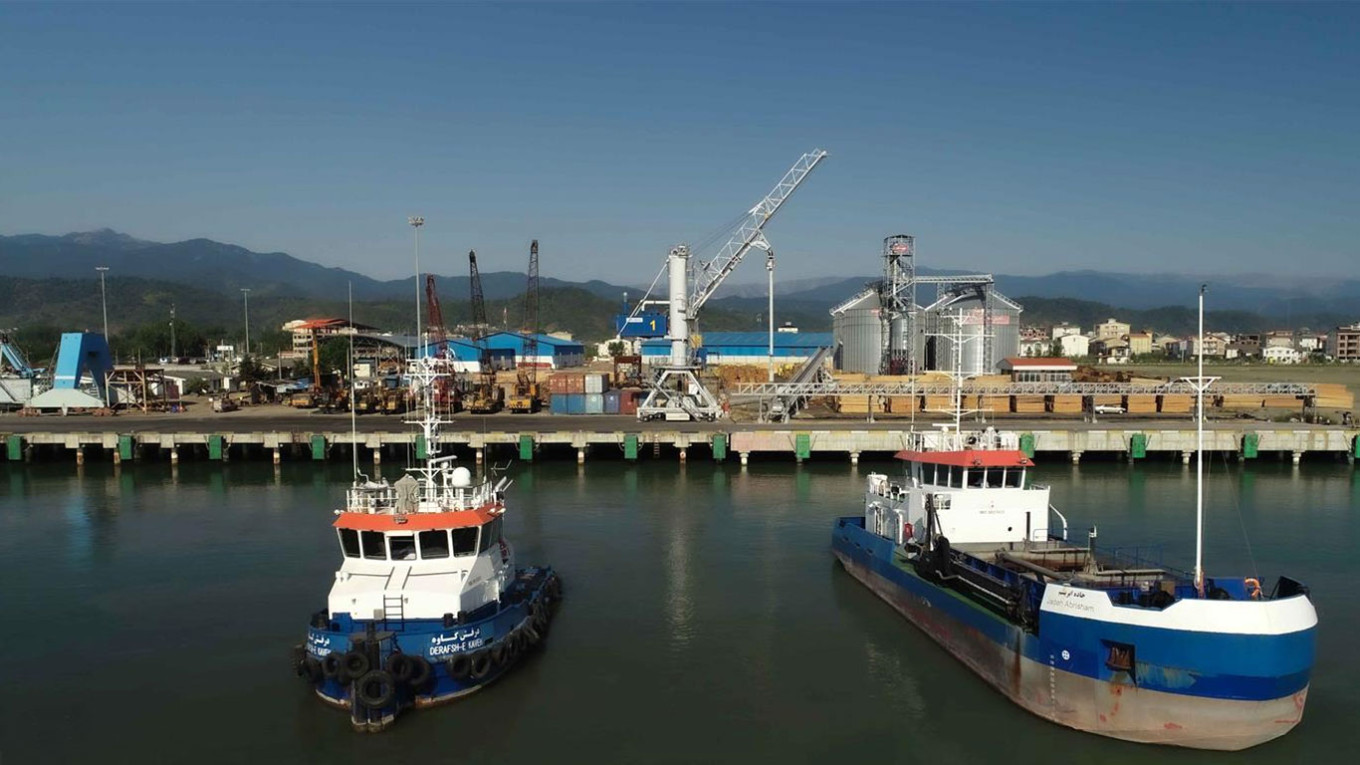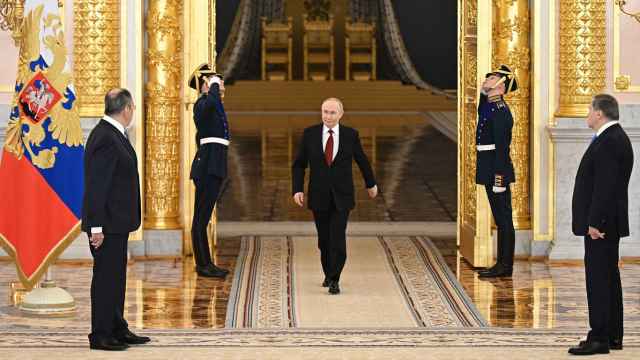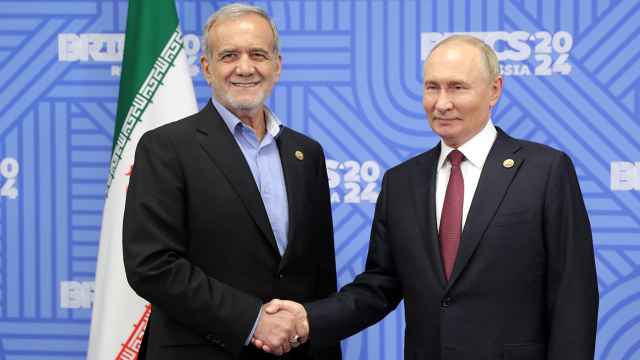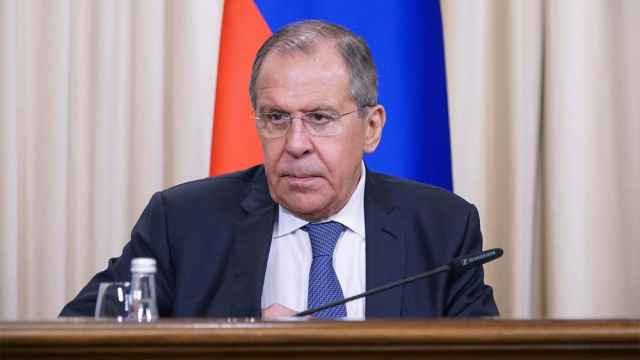Iran-Russia relations have entered a new era of mutual cooperation. Thanks to the war in Ukraine, Moscow and Tehran’s interests — whether military, economic or geopolitical — have aligned to an extent not seen for many decades.
The contrast with the period before the Russian invasion of Ukraine is striking. Since Feb. 24, 2022, bilateral political meetings have multiplied. High-level delegations are constantly traveling between the two countries. On the economic front, Russian exports to Iran rose 27% last year, and Russian imports from Iran increased 10%. Both sides have agreed to scale up trade in currencies other than the U.S. dollar, while Russia has pledged to invest an unprecedented $40 billion in Iran’s oil and gas sector. In addition, Moscow has bought a large number of Iranian military drones, which it used to attack Ukrainian cities and infrastructure, and possibly some short-range ballistic missiles. Significantly for the military capabilities of the Islamic Republic, Moscow finally allowed Tehran to purchase state-of-the-art Sukhoi Su-35 combat aircraft, as well as air defense and missile systems.
Perhaps the most important changes, however, have been in transport networks. As a result of the fighting in Ukraine, and in a bid to bypass Western sanctions, Russia has begun shifting trade routes southward. This is why Iran and Russia have ramped up work to develop the much-touted and ambitious International North-South Transport Corridor (INSTC), which will stretch from the Persian Gulf to the Baltic Sea.
Conceived in the early 2000s by Russia, India and Iran, the 7,200-kilometer-long project has since seen little meaningful progress. All this changed late last month, however, when Russia and Iran agreed to complete a missing railway section of the INSTC. The construction of the Astara-Rasht railroad has been delayed for decades — partly because of a lack of funds, but mostly because of the Western sanctions on Iran.
Now, the project is due to be completed by 2027 and will mostly be financed by Russia. The 170-kilometer section of railway will create an uninterrupted transport link from Iran’s southern sea ports to Russia’s Baltic Sea and Black Sea ports. In an ideal scenario it would take goods 18 days to travel from the Baltic Sea to India via Azerbaijan and Iran. Goods delivered via the INSTC will travel twice as fast as the alternative via the Suez Canal.
While the INSTC consists of three branches, it’s the western branch that is the most important because Russia and Iran’s most populous provinces are located in their western areas. Time will show how effective the corridor will become, but its realization after decades of stalling signals a new era in Iran-Russia relations.
Many seem to believe that the warming ties between Russia and Iran will result in the signing of an official alliance, cementing their joint vision and making them into true allies. In the absence of such a formal alliance, the logic goes, the Iran-Russia partnership would remain situational and less effective. Yet, what this line of thinking misses is that, amid a new, emerging world order, Eurasian states increasingly tend to avoid such alliances. For them, formal treaties are cumbersome, limiting their room for diplomatic maneuver and imposing unnecessary foreign policy and — most likely military — obligations.
Eurasian states like Russia and Iran now appear to prefer a transactional approach. For them, there are no true allies — only temporary or long-term partners who are chosen according to the balance of power. Historically, this is a more durable concept than Western ideas of multilateralism and equal rights for all countries.
The Russia-led Collective Security Treaty Organization (CSTO) military alliance is a case in point. Even within the CSTO, which includes a mutual defense clause, Russia — as a true Eurasian state — is transactional when it comes to foreign policy and gives preference to stronger and geopolitically more important states. Take, for example, Armenia, Russia’s long-time ally. Since the Armenia-Azerbaijan war in 2020, Moscow has on numerous occasions refused to side with Yerevan because Baku was simply too geographically important for the Kremlin. Not only does Azerbaijan host the western branch of the North-South corridor, but it is a key ally of Turkey (Ankara plays a critical role in Moscow’s strategy to undermine Western unity).
This sort of transactional approach will be the format for warming Iran-Russia ties. Yet it does not mean that their bilateral relationship is only temporary. Quite the opposite. Iran and Russia have entered a period of close alignment where shared opposition to the West far outweighs any grievances that may still be held by the political elites in either country. Given the long-lasting nature of Russia-West rivalry and the fact that the war in Ukraine does not appear likely to end soon, Iran-Russia cooperation looks set to deepen.
Moscow and Tehran could be described as allies — but in a different way to which the term is traditionally used in Western nations. They are bound together by a “Eurasian” type of bilateral bond that is not limited to Russia and Iran, but can also be seen in Russia-China, Turkey-Russia and China-Iran interactions. Eurasian states increasingly prefer non-alliances as a way to multiply foreign policy options and minimize geopolitical fixations.
A Message from The Moscow Times:
Dear readers,
We are facing unprecedented challenges. Russia's Prosecutor General's Office has designated The Moscow Times as an "undesirable" organization, criminalizing our work and putting our staff at risk of prosecution. This follows our earlier unjust labeling as a "foreign agent."
These actions are direct attempts to silence independent journalism in Russia. The authorities claim our work "discredits the decisions of the Russian leadership." We see things differently: we strive to provide accurate, unbiased reporting on Russia.
We, the journalists of The Moscow Times, refuse to be silenced. But to continue our work, we need your help.
Your support, no matter how small, makes a world of difference. If you can, please support us monthly starting from just $2. It's quick to set up, and every contribution makes a significant impact.
By supporting The Moscow Times, you're defending open, independent journalism in the face of repression. Thank you for standing with us.
Remind me later.








